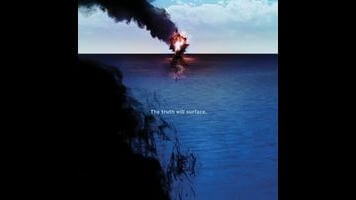Is there any real point to making a documentary about a widely publicized event if the film conforms precisely to any rational viewer’s expectations? The Great Invisible, directed by Margaret Brown (The Order Of Myths), seeks to explore the lingering psychological, emotional, and economic fallout from the Deepwater Horizon tragedy of 2010—an explosion that killed 11 workers on the BP-operated oil rig and dumped nearly 5 million barrels of crude into the Gulf Of Mexico (mostly from a hard-to-cap gusher on the ocean floor). It’s not clear, however, exactly what Brown believes to be invisible, since the disaster was heavily covered by the media at the time and her film offers no significant new information. It does put a human face on the suffering of those who lost jobs and/or loved ones, which has some value, but anyone hoping for a more nuanced take than “corporations are bad and regular folks are good” will be disappointed.
Admittedly, the film has no choice but to be one-sided in certain respects, since BP refused to take part or comment in any way. (The closest Brown gets is Kenneth Feinberg, the attorney BP hired to disburse $20 billion the company voluntarily allotted for payment of claims, but she fails to ask him any truly probing questions.) Interview subjects include the angry father of one of the workers who died; a couple of surviving Deepwater employees who are still coping with post-traumatic stress and feelings of intense guilt (one has contemplated suicide, while another slashed his arms with a pair of scissors while in a fugue state); and residents of Bayou La Batre, Alabama’s seafood capital, which has yet to recover from the region’s devastating loss of income. If the movie has a central figure, it’s surely Roosevelt Harris, a near-saintly figure who volunteers to feed the bayou’s hungry and dispenses homespun words of wisdom.
Harris is such good company Brown might profitably have concentrated primarily on him, exploring the ways in which residents of the Gulf are coping, with the Deepwater tragedy functioning as a backdrop. Instead, The Great Invisible aspires to be a muckraking doc, calling for BP’s accountability. And that’s not Brown’s forte, to put it kindly. The film soberly notes that Congress has passed no new safety legislation concerning the petroleum industry since the disaster, but spends virtually no time examining the cause of the explosion or questioning what steps would be necessary to prevent its recurrence. The bias is at times laughably blatant: A scene in which oil execs discuss the American consumer’s reliance on cheap gasoline (relative to, say, Europe)—which is a valid point, necessary to address in any debate about offshore drilling—sees Brown rack focus twice in quick succession in order to foreground one guy knocking back a drink and another blowing a smoke ring from his cigar. Oh, are they fat cats? Subtle.
In any case, The Great Invisible, which premiered at the South By Southwest festival last March, is already somewhat dated as it arrives in theaters. Closing titles grimly reveal that BP continues to flourish, but less than two months ago, a federal court in New Orleans ruled that the company was grossly negligent, potentially costing it an additional $18 billion in damages. “[This] casts a cloud over BP’s future,” The New York Times suggested. That doesn’t bring back the dead or put food on anyone’s table, but at least the wheels of justice do in fact turn sometimes, however slowly.


















![HBO teases new Euphoria, Larry David, and much more in 2026 sizzle reel [Updated]](https://img.pastemagazine.com/wp-content/avuploads/2025/12/12100344/MixCollage-12-Dec-2025-09-56-AM-9137.jpg)






















